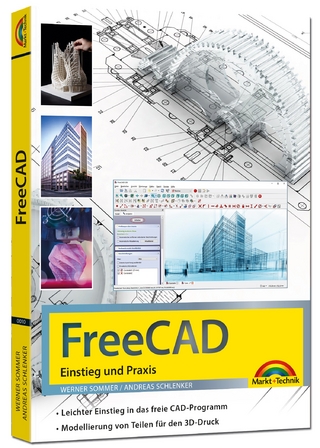
Turtles, Termites and Traffic Jams
Explorations in Massively Parallel Microworlds
Seiten
1994
MIT Press (Verlag)
978-0-262-18162-4 (ISBN)
MIT Press (Verlag)
978-0-262-18162-4 (ISBN)
- Titel ist leider vergriffen;
keine Neuauflage - Artikel merken
This text examines the concept of decentralization and its effects in everday culture. It considers the reasons behind resistance to decentralization, and describes computational methods - such as modelling and simulation - and activities that can help develop new perspectives on decentralization.
Does every group have a leader? Does every pattern have a central cause? Most people tend to think so. Increasingly, decentralized models are being chosen for the organizations and technologies they construct in the world, and for the theories they construct about the world. But even as ideas about decentralization spread throughout the culture, there is a deep-seated resistance to them. This text examines how and why this is so and describes innovative computational tools and activities that can help people (even young children) develop new ways of thinking about decentralization, with examples in many different domains. This wide-ranging exploration into the non-intuitive world of decentralized systems and self-organizing phenomena brings together ideas from computer science, education, systems theory, and artificial life, with the aim of making the notion of self-organization more accessible. Using a new massively parallel programming language called StarLogo, Mitchel Resnick shows how the actions and interactions of thousands of artificial "creatures" can be controlled on the computer screen.
For example, a user might write simple programs to describe the actions of thousands of artificial ants, then observe the complex patterns in the ant colony that arise from all of the interactions. Resnick describes how high school students have used StarLogo to create new types of computer simulations, examines how their thinking changed in the process, and concludes by proposing heuristics for thinking about decentralized systems.
Does every group have a leader? Does every pattern have a central cause? Most people tend to think so. Increasingly, decentralized models are being chosen for the organizations and technologies they construct in the world, and for the theories they construct about the world. But even as ideas about decentralization spread throughout the culture, there is a deep-seated resistance to them. This text examines how and why this is so and describes innovative computational tools and activities that can help people (even young children) develop new ways of thinking about decentralization, with examples in many different domains. This wide-ranging exploration into the non-intuitive world of decentralized systems and self-organizing phenomena brings together ideas from computer science, education, systems theory, and artificial life, with the aim of making the notion of self-organization more accessible. Using a new massively parallel programming language called StarLogo, Mitchel Resnick shows how the actions and interactions of thousands of artificial "creatures" can be controlled on the computer screen.
For example, a user might write simple programs to describe the actions of thousands of artificial ants, then observe the complex patterns in the ant colony that arise from all of the interactions. Resnick describes how high school students have used StarLogo to create new types of computer simulations, examines how their thinking changed in the process, and concludes by proposing heuristics for thinking about decentralized systems.
Part 1 Foundations: introduction; the era of decentralization. Part 2 Constructions: constructionism; LEGO/logo; StarLogo; objects and parallelism. Part 3 Explorations: simulations and stimulations; slime mould; artificial ants; traffic jams; termites; turtles and frogs; turtle ecology; new turtle geometry; forest fire; recursive trees. Part 4 Reflections: the centralized mindset; beyond the centralized mindset. Part 5 Projections: growing up. Appendices: student participants; StarLogo overview.
| Erscheint lt. Verlag | 5.9.1994 |
|---|---|
| Reihe/Serie | Complex Adaptive Systems |
| Zusatzinfo | 15ill. |
| Verlagsort | Cambridge, Mass. |
| Sprache | englisch |
| Maße | 160 x 235 mm |
| Gewicht | 430 g |
| Themenwelt | Geisteswissenschaften ► Psychologie ► Allgemeine Psychologie |
| Geisteswissenschaften ► Psychologie ► Verhaltenstherapie | |
| Informatik ► Grafik / Design ► Digitale Bildverarbeitung | |
| Mathematik / Informatik ► Informatik ► Theorie / Studium | |
| ISBN-10 | 0-262-18162-2 / 0262181622 |
| ISBN-13 | 978-0-262-18162-4 / 9780262181624 |
| Zustand | Neuware |
| Haben Sie eine Frage zum Produkt? |
Mehr entdecken
aus dem Bereich
aus dem Bereich
Modelle für 3D-Druck und CNC entwerfen
Buch | Softcover (2022)
dpunkt (Verlag)
34,90 €
Methoden, Konzepte und Algorithmen in der Optotechnik, optischen …
Buch | Hardcover (2024)
Hanser (Verlag)
39,99 €


